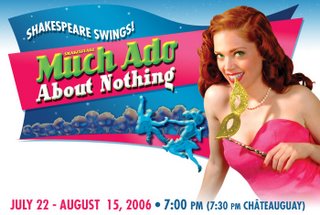There's a Guild, for which the position of Chair, a government office, is up for election next week. An accident and an investigation. Internal Affairs. The minions of unknown employers conducting "interviews" and ransacking homes. Corporate interests and mob involvement.
And it's all about elevators.
There are two schools of elevator inspectors: the Empiricists (by-the-book examiners of the machinery) and Intuitionists (who are guided by, for example, the sound and "feel" of an elevator to detect problems). Lila Mae Watson graduated from the Institute for Vertical Transport and is the Guild's first black woman inspector. She's also an Intuitionist.
(One of the most interesting things (to me) about this novel is that if you tilt your head just right you can almost see how it might be written, how this slightly off reality could be created from everday scraps filtered through an uncommon perspective (in this case, the elevator inspector's). I felt a similar effect reading Auster's In the Country of Last Things and to a lesser degree Mantel's Beyond Black. It's a different kind of creative imagination than involves original plotting or oddball characters. There's something skewed, exaggerated, brought into relief, but you can sense something you know at its core, you can almost see it when you walk through that part of the city at a certain time of day.)
Here's a flashback to Lila Mae's school days I found highly entertaining:
"The Dilemma of the Phantom Passenger asks what happens when the passenger who has engaged the call button departs, whether he changed his mind and took the stairs or caught an up-tending car when he wanted to go down because he did not feel like waiting. It asks what happens to the elevator he summoned."
Professor McKean said, "That's right. Fulton asks this question and leaves it to the reader, abruptly proceeding on to the psychology of the Door Close button. How do you think Fulton would answer his question?"
"Obviously, " Gorse said, "the elevator arrives, the doors open for the standard loading time, and the doors close. That's it."
Johnson, the burly freshman who always sat next to Lila Mae, ignored Gorse and offered in his stumbling voice, "I think that Fulton would say that the elevator arrives but the doors do not open. If there's no need for the doors to open, then the vertical imperative does not apply."
Professor McKean nodded. "Any other theories?"
Bernard, who could usually be relied upon to provide a sensible response, said, "For one thing, the vertical imperative applies to the elevator's will, and doesn't apply to passengers. I think what Fulton was referring to in this section was the 'index of being' — where the elevator is when it is not in service. If, as the index of being tells us, the elevator does not exist when there is no freight, human or otherwise, then I think in this case the doors open and the elevator exists, but only for the loading time. Once the doors close, the elevator returns to nonbeing — 'the eternal quiescence' — until called into service again." Bernard sat back in metal chair, satisfied.
Professor McKean said simply, "That's good. Anyone else?"
Lila Mae waited for someone to give her an answer. No one did. Lila Mae cleared her throat and said in a thin voice, "Fulton is trying to trick the reader. An elevator doesn't exist without its freight. If there's no one to get on, the elevator remains in quiescence. The elevator and the passenger need each other."
Professor McKean nodded quickly and then inquired of this pupil, "And if we set up a film camera in the hallway to see what would happen, what would we see when we developed the film, Watson?"
Lila Mae met his eyes. "By leaving the camera there, you've created what Fulton calls 'the expectation of freight.' The camera is a passenger who declines to get on the elevator, not a phantom passenger. The film would record that the doors open, the elevatar waits, and then the doors close."
Wikipedia.
Excerpt.
Reviews:
Brainwashed
New York Times





